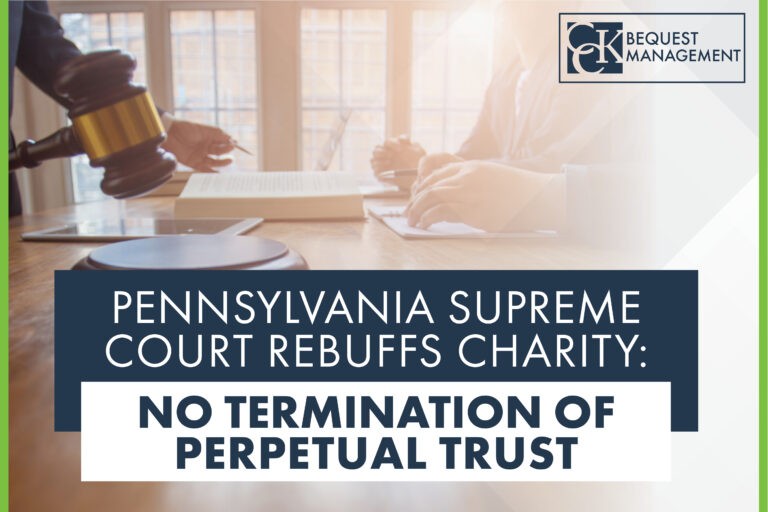Pennsylvania Supreme Court Rebuffs Charity: No Termination of Perpetual Trust

In the days before donor-advised funds, testators of significant wealth often established perpetual trusts to provide ongoing support to charities. These older giving vehicles still exist, providing benefits to organizations. In 1956, Richard Wells, a Class of 1924 graduate of Virginia Military Institute (VMI), created such a trust for his alma mater. Wells died in 1968, and upon the death of Mrs. Wells in 2004, the payments to VMI began. Wells had stipulated that the trustee distribute the “net income” of the trust on an annual basis to VMI Foundation, a public charity that holds and manages VMI’s assets.
After Wells’ death, when his trust had become irrevocable, the Tax Reform Act of 1969 included statutory changes that reclassified the trust as a private foundation. The private foundation rules impose certain additional expenses on the Wells Trust, which holds more than $2 million and provides an annual benefit to VMI of roughly $70,000. PNC, the corporate successor to the original trustee, charges yearly fees of $20,000. Expenses of private foundation compliance are $5,000.
In 2019, VMI sought court approval to terminate the Wells Trust and distribute its assets immediately. VMI asserted that the termination would make more funds available for Wells’ charitable purposes by eliminating the private foundation expenses and reducing the cost of investment management. (VMI claimed that its internal management would cost much less than PNC’s.) VMI also argued that the flexible distribution policy that it could implement would be a more productive use of Wells’ assets than the rigid formula mandated by the terms of the trust and the private foundation spending rules.
The court agreed with VMI’s assessment of the benefits of termination. Nonetheless, it declined to rewrite Mr. Wells’ estate plan. Even though the trust was not achieving optimal economy, it was providing a substantial benefit to the beneficiary and would continue to do so for a long time. VMI’s arguments failed to show that the trust’s expenses were “unreasonably out of proportion to the charitable benefits,” which is the legal standard for termination. The Wells Trust would remain as drafted. (In Re Trust B Under Agreement of Wells, ____A.3d_____(Pa. 2024))
CCK COMMENT: Although inapplicable to the situation in Wells, some states have adopted procedures for the termination of smaller trusts that are no longer achieving their original purpose.
This article was originally posted on our LinkedIn on May 29, 2024. To read more cases of interest, check out our recent article.